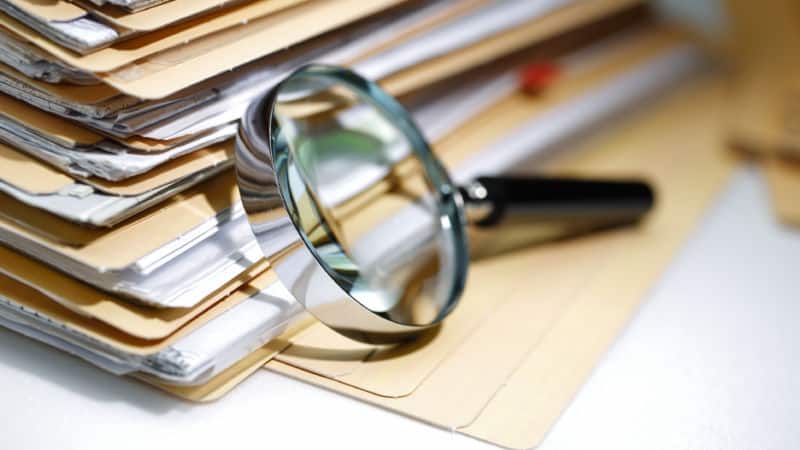
Discovery is the pre-trial phase in a legal case where both parties exchange information, documents, and evidence relevant to the case. In personal injury cases, discovery is essential for gathering facts, assessing the strengths and weaknesses of each side’s arguments, and building a strong case. The discovery process may include depositions, interrogatories, requests for production, and requests for admissions. At 770GoodLaw, we guide our clients through each stage of discovery, ensuring thorough preparation and gathering the evidence needed to pursue fair compensation.
Purpose of Discovery in Personal Injury Cases
Discovery plays a crucial role in personal injury cases by promoting transparency, enabling effective case preparation, and encouraging fair outcomes. The main purposes of discovery include:
- Fact-Finding: Discovery allows both parties to gather information about the accident, injuries, and other key facts, ensuring that they have a full understanding of the case.
- Evidence Collection: Through discovery, parties collect evidence such as medical records, accident reports, and witness statements to support their claims or defenses.
- Assessing Case Strengths and Weaknesses: Discovery reveals the strengths and weaknesses of each side’s arguments, helping both parties make informed decisions about settlement or trial.
- Facilitating Settlement Negotiations: By understanding the full scope of evidence, both parties may be more willing to negotiate and reach a fair settlement before going to trial.
Types of Discovery Tools in Personal Injury Cases
Several tools and methods are used during discovery to gather information and evidence. Common discovery tools include:
-
Depositions: A deposition is an out-of-court testimony given under oath by a witness or party involved in the case. During a deposition, attorneys ask questions to gather detailed information and establish facts.
-
Interrogatories: Interrogatories are written questions that one party sends to the other, requiring written responses under oath. These questions help clarify details, such as accident circumstances and injury-related information.
-
Requests for Production: This tool involves requesting specific documents or items, such as medical records, financial documents, or photographs, that are relevant to the case.
-
Requests for Admissions: In a request for admission, one party asks the other to admit or deny specific statements or facts related to the case, streamlining areas of agreement and narrowing disputed issues.
-
Independent Medical Examinations (IME): In cases where the severity of injuries is disputed, the defense may request an IME, where a neutral medical professional evaluates the plaintiff’s injuries.
The Discovery Process in Personal Injury Cases
The discovery process is structured to ensure both parties have the information they need to build their cases and avoid surprises at trial. Important steps in the discovery process include:
- Initial Discovery Requests: Each party submits initial requests, such as interrogatories and requests for production, to obtain evidence and information from the opposing side.
- Responses and Objections: The receiving party responds to each discovery request, either providing the requested information or raising objections if they believe a request is overly broad or irrelevant.
- Depositions and Interviews: Depositions are scheduled for key witnesses, the plaintiff, and the defendant, allowing each party’s attorney to question individuals under oath.
- Reviewing and Analyzing Evidence: Both parties review the collected evidence, analyzing it for potential strengths and weaknesses in preparation for settlement or trial.
- Supplemental Discovery: If new information becomes available, both parties may need to update their disclosures and provide additional evidence as the case progresses.
Challenges in the Discovery Process
The discovery process can present challenges, particularly in complex personal injury cases or when one party is uncooperative. Common challenges include:
-
Incomplete or Withheld Information: Parties may fail to disclose all relevant information, requiring legal action to compel full disclosure.
-
Privacy Concerns: Disclosure of medical or financial information can raise privacy concerns, especially if the defense seeks access to sensitive records.
-
Time-Consuming Process: Discovery can be lengthy, involving extensive document review, depositions, and back-and-forth exchanges that can delay the case.
-
Disputes Over Relevance: Parties may disagree on the relevance of certain evidence, resulting in motions and court interventions to resolve disputes.
Importance of Discovery in Case Preparation and Settlement
Discovery is essential for building a strong case and achieving fair settlements. Key ways that discovery impacts personal injury cases include:
-
Enhanced Case Preparation: Discovery provides attorneys with the information they need to anticipate the other side’s arguments and prepare effective counterarguments.
-
Informed Settlement Negotiations: Access to all relevant evidence allows both parties to assess the likely outcome at trial, encouraging fair settlement offers.
-
Preventing Surprises at Trial: With comprehensive discovery, both sides are aware of the evidence and testimony that will be presented, reducing the likelihood of unexpected information.
-
Strengthening the Plaintiff’s Case: Discovery supports the plaintiff’s claims by providing detailed documentation of injuries, costs, and the impact on their life, building a solid foundation for seeking compensation.
How 770GoodLaw Assists Clients Through the Discovery Process
At 770GoodLaw, we provide comprehensive support for clients throughout discovery, ensuring that all necessary information is obtained and that they are fully prepared for each stage. Our approach includes:
- Crafting Strategic Discovery Requests: We carefully tailor our discovery requests to obtain all relevant evidence, maximizing the information available to support our clients’ cases.
- Preparing Clients for Depositions: We work closely with clients to prepare them for depositions, ensuring they understand what to expect and are comfortable answering questions under oath.
- Reviewing and Analyzing Evidence: Our team thoroughly reviews the evidence gathered during discovery, identifying strengths, weaknesses, and areas for further investigation.
- Challenging Incomplete Responses: If the opposing party fails to provide complete responses, we file motions to compel, seeking court intervention to enforce full disclosure.
- Balancing Privacy and Disclosure: We advocate for our clients’ privacy, ensuring that only relevant information is disclosed while protecting sensitive personal details.
Importance of Legal Representation in Discovery
The discovery process requires legal expertise to navigate effectively, from crafting precise requests to handling disputes over evidence. Skilled legal representation ensures that clients have access to all the information they need to build a strong case and that their rights are protected throughout the process. At 770GoodLaw, we provide dedicated support for clients, guiding them through discovery and preparing them for a successful outcome in their personal injury case.
Why Choose 770GoodLaw for Personal Injury Cases Involving Discovery
Our commitment to Relentless Reliability and Sincetegrity drives us to provide comprehensive, client-centered support in personal injury cases, including managing the complexities of discovery. At 770GoodLaw, we work tirelessly to secure critical evidence, protect our clients’ rights, and maximize their chances of a favorable resolution.






